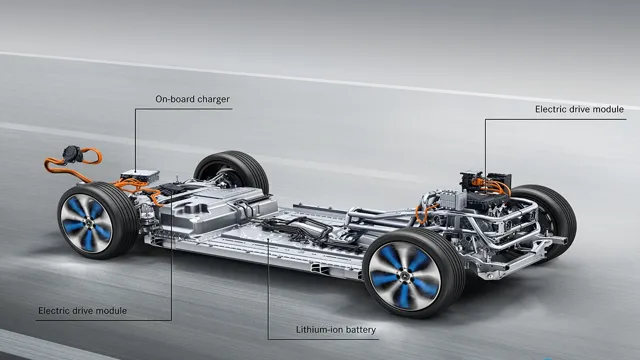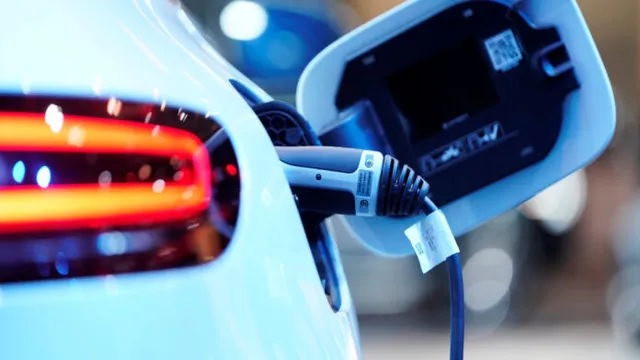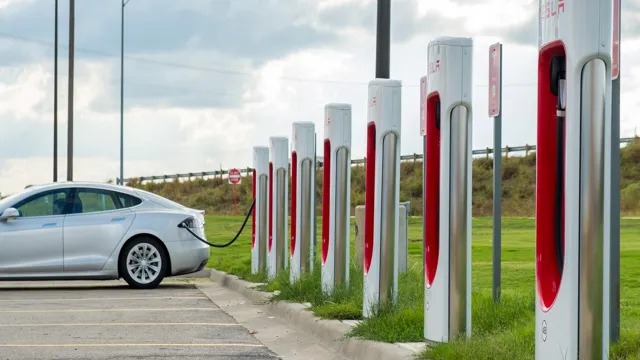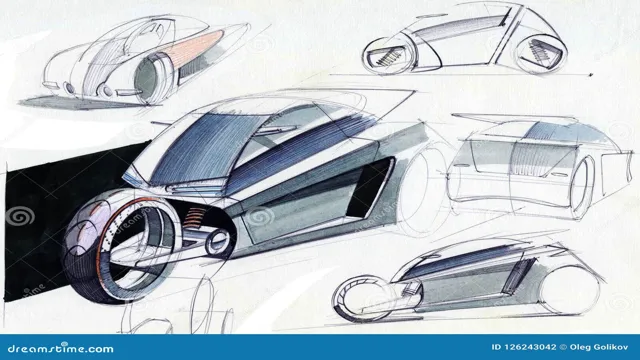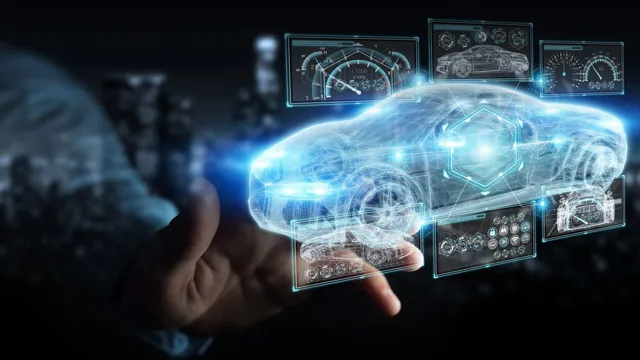Revolutionizing the Roads: The Future of Electric Cars with Advanced Battery Technology
Electric cars have become increasingly popular over the past few years, and the future looks even brighter, with many advancements in battery technology. Electric cars are more efficient than gasoline cars and produce fewer emissions, making them an environmentally friendly choice. However, battery technology has always been a major challenge for the electric car industry.
But with the constant evolution and improvement in battery technology, the future looks brighter than ever before. The proliferation of electric cars is an indication of the future of transportation, and the advancements in battery technology will only help to enhance the practicality and convenience of electric vehicles. With improved battery life and increased range, electric vehicles will become even more accessible to the masses, and continue to make travel a lot more eco-friendly.
But how exactly does battery technology enhance the future of electric cars? Well, it all comes down to the battery design and how much energy it can store. The development of solid-state batteries, which will hold more power in cars and have much faster charging times, makes it probable that electric cars will soon hold a more significant market share than gasoline cars. In conclusion, the electric car industry is quickly evolving, and battery technology advancements are one of the most promising improvements that could ensure the future of electric vehicles is a bright one.
As battery technology continues to evolve, electric vehicles will become more and more affordable, practical, and convenient for everyday use, making power-efficiency accessible and advancing the world towards a carbon-free environment. So, buckle up your seat belts as we take a ride towards a more sustainable future, powered by advanced battery technology.
Cost of Electric Cars vs Gas Cars
When it comes to comparing the cost of electric cars versus gas cars, battery technology plays a significant role. While gas cars rely on expensive fossil fuels that are prone to price fluctuations, electric cars run on rechargeable batteries that have been getting cheaper over time. In fact, advancements in battery technology have made electric cars increasingly affordable, making them a viable option for many drivers.
Compared to gas cars, electric cars also have lower operating costs since electricity is cheaper than gasoline. Additionally, electric cars require less maintenance since they have fewer moving parts and don’t need oil changes. Overall, the upfront cost of an electric car may be higher, but the long-term savings make it a smart investment for eco-conscious and budget-minded drivers alike.
With battery technology continuing to evolve, it’s exciting to imagine what the future holds for electric cars.
Battery Technology Advancements Driving Costs Down
Battery technology advancements have been a real game-changer for the electric car industry. With each passing year, we have witnessed a significant reduction in battery costs, making electric cars more affordable and a practical option for consumers. The cost of electric cars versus gas cars is a topic that interests many people.
Thanks to technologies like Lithium-ion and solid-state batteries, electric cars can go further, charge faster, and last longer, increasing their popularity and reducing prices. One of the biggest drawbacks of electric cars has been the cost of their batteries. However, battery technology advancements, along with mass production, are driving costs down.
As we continue to transition towards a cleaner energy future, the cost of electric cars will eventually become even more affordable, and with the added advantages of sustainability and environmental benefits, it’s no wonder more people are considering making the switch.
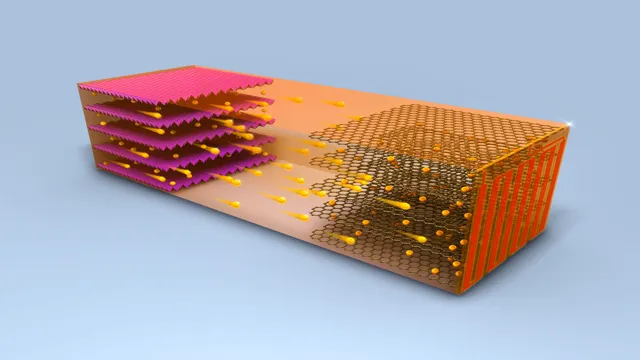
Electric Car Battery Replacement Costs
Cost of Electric Cars vs Gas Cars When considering whether to purchase an electric car or a gas car, one factor to keep in mind is the cost of replacing the car’s battery. Electric car batteries are known for their high initial cost, but how do they compare when it’s time to replace them? The truth is that it depends on the specific car model and the age of the vehicle. However, in general, battery replacement for an electric car can cost between $3,000 and $7,000.
On the other hand, gas car owners typically do not have to worry about the cost of replacing their car’s engine, as they tend to last for many years. It’s important to consider both the upfront cost and potential future costs when deciding between an electric car and a gas car. Ultimately, the decision should be based on your personal preferences and needs, as well as your budget.
Performance of Electric Cars
Battery technology has played a significant role in the performance of electric cars over the years. Early electric cars faced range limitations and inadequate power that hindered their adoption by consumers. However, with the improvement in battery technology, we have seen a noticeable improvement in both the range and performance of electric cars.
The latest electric car models can travel hundreds of miles on a single charge and offer impressive acceleration. The development of lithium-ion batteries and the use of advanced materials have made it possible to pack more energy in smaller and lighter batteries, thus enhancing the efficiency of electric cars. In addition, the adoption of smart charging technology has made it easier to manage the charging process and optimize the battery performance.
The future looks bright for electric cars as advances in battery technology continue to bring about more efficient and high-performing electric vehicles.
Battery Technology Improving Range and Speed
Electric cars have come a long way in recent years, and the performance improvements are helping to drive more interest in them. One of the key factors driving this improvement is battery technology. With longer-lasting and more efficient batteries being developed all the time, electric cars are now able to go further on a single charge than ever before.
Plus, the increased efficiency of these batteries also means that electric cars can achieve higher speeds without sacrificing range. This is great news for those who are looking for a more eco-friendly way to get around, as it means that electric cars are becoming more practical options for everyday use. With the ability to drive further and faster, more people are likely to be tempted to switch to electric in the near future.
Battery Charging Time vs Gas Refueling Time
Performance of electric cars. As electric cars continue to gain popularity, comparisons with traditional gasoline-powered cars continue to arise. One frequently discussed topic is the time it takes to charge an electric car compared to the time it takes to refuel a gasoline car.
Typically, electric cars take longer to charge than gasoline cars take to refuel, but this gap is decreasing. The charging time for an electric car depends on the type of charger, with a 120V charger taking 18-20 hours to charge a vehicle, while a Level 2 charger takes 2 to 8 hours, and a DC fast charger takes 30 minutes to 1 hour. Gasoline cars, on the other hand, usually take about five minutes to refuel.
However, this time-saving is offset by the fact that EVs can be charged at home or work, while gas cars must go to a gas station. Moreover, electric cars can similarly offer faster acceleration and smoother riding than gasoline-powered cars. In conclusion, electric cars have comparable performance to gasoline-powered cars, and as technologies advance, the charging time will eventually catch up to the fast refueling time of gasoline cars.
Impact of Temperature on Battery Performance
Electric cars are all the rage in today’s world, but they come with a caveat – battery performance is affected by temperature. The battery’s capacity decreases in cold temperatures, making it less efficient and reducing the range of the vehicle. Conversely, hot temperatures can damage the battery, affecting its performance and shortening its lifespan.
Finding the ideal temperature at which the battery operates best is a challenge faced by electric car manufacturers. Factors like weather conditions, terrain, and driving style can also impact battery performance. As a result, owners of electric cars must take proper care of the battery to ensure maximum performance and longevity.
Simple precautions like parking in a garage during cold weather can help maintain battery capacity. By understanding the impact of temperature on battery performance, electric car owners can maintain their vehicles and keep them running efficiently for years to come.
Environmental Impact of Battery Technology
Battery technology has revolutionized the world of electric cars, but its environmental impact is a concern that can’t be ignored. The production of batteries requires the use of rare and often hazardous materials like lithium, cobalt, and nickel. Mining these materials can lead to air and water pollution, wildlife disturbance, and even human rights violations in some countries.
Furthermore, the disposal of used batteries also poses a significant environmental risk due to the potential leakage of toxic chemicals. However, with increasing awareness and push towards sustainable alternatives, many companies are working towards developing more eco-friendly battery technology by incorporating recycled materials or reducing the amount of toxic substances used in production. Ultimately, as the shift towards electric transportation continues, it’s important to address the environmental impact of battery technology and strive for a greener, more sustainable future.
Recycling and Disposal of Lithium-ion Batteries
Recycling, Lithium-ion Batteries, Environmental Impact Battery technology has come a long way, but the environmental impact of battery disposal and recycling persists. Lithium-ion batteries, in particular, contain valuable and sometimes hazardous materials that require proper handling to avoid negative impacts on our environment. To make matters even more complicated, lithium-ion batteries come in varying shapes and sizes, which can make recycling or disposal a bit difficult.
However, the good news is that recycling efforts for lithium-ion batteries are expanding, and several companies are developing new technologies to safely recycle them. These efforts help keep the hazardous materials contained while also allowing useful materials to be reused and reducing waste. With proper recycling and disposal of lithium-ion batteries becoming more widespread, we can reduce the amount of waste in our environment and help reduce carbon emissions.
So, the next time you have a dead battery, remember that recycling is an option, and it can have a significant impact on our planet’s well-being.
Carbon Footprint of Manufacturing Lithium-ion Batteries
Lithium-ion batteries have become an integral part of modern life, powering everything from electric cars to smartphones. But given the increasing concern over the impact of human activities on the environment, it’s important to consider the carbon footprint of manufacturing these batteries. A lithium-ion battery requires a significant amount of energy to produce, from mining and processing the raw materials to manufacturing and assembling the final product.
The emissions generated during this process contribute to greenhouse gas emissions and climate change, which has led to efforts to mitigate the environmental impact of battery production. Companies are now developing more sustainable methods of manufacturing lithium-ion batteries using renewable energy sources and recycled materials. These efforts will help to reduce the carbon footprint of battery production and minimize the impact on the planet.
Conclusion: Battery Technology Driving the Future of Electric Cars
In conclusion, battery technology is the powerhouse behind electric cars, providing the energy to propel drivers towards a more sustainable future. And while some may argue that the limitations of battery life and charging time hinder the wider adoption of electric cars, one thing is clear: the race is on to improve battery technology and make electric cars more efficient, affordable and accessible. So buckle up, because the future of sustainable transportation is powered by batteries – and it’s going to be electrifying!”
FAQs
What advancements in battery technology have allowed for improved range in electric cars?
The development of higher energy density batteries, such as lithium-ion batteries, has allowed for electric cars to travel farther on a single charge.
How do electric car batteries differ from traditional car batteries?
Electric car batteries are much larger and designed to provide sustained power over long periods of time, as opposed to traditional car batteries which are designed for short bursts of power to start the engine.
Are there any drawbacks to electric car batteries?
One major drawback is that they can take much longer to charge than filling up a traditional gas tank. Additionally, some materials used in the production of batteries can be harmful to the environment.
Can electric car batteries be recycled?
Yes, many electric car batteries can be recycled and their components reused, reducing waste and environmental impact.
